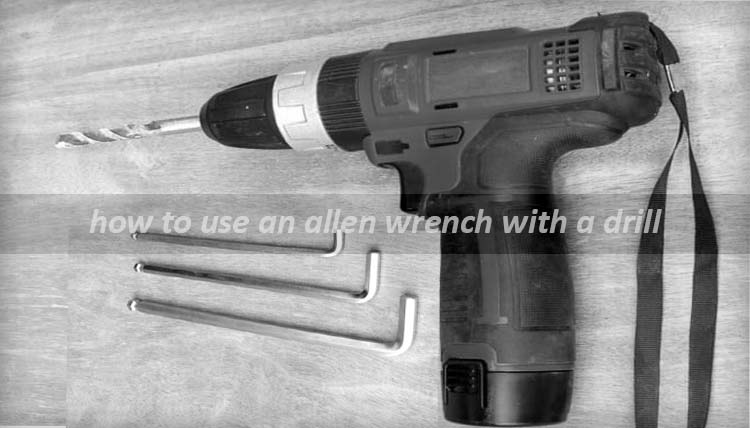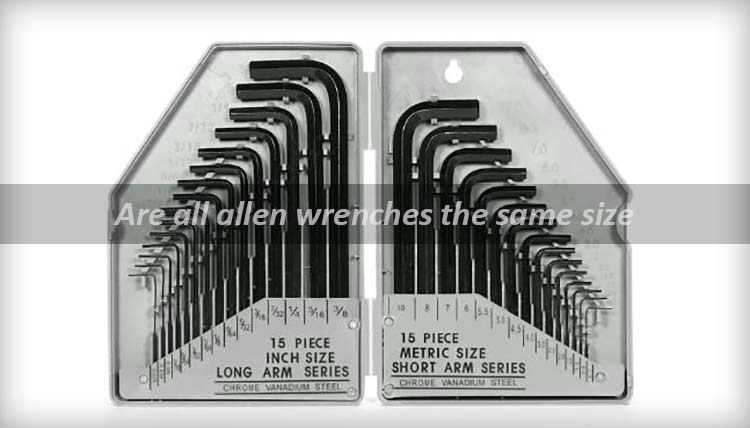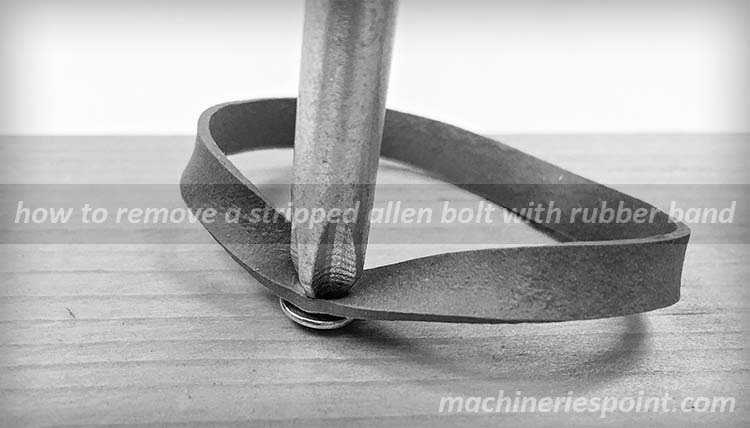Allen key vs Allen wrench – do you know the difference between them? Many people use the terms “Allen key” and “Allen wrench” interchangeably, but they actually refer to two different things.
An Allen key is a hand tool used to apply force to bolts or screws with a hexagonal socket in their heads, while an Allen wrench is a type of wrench with a hexagonal socket on one end to turn bolts and screws with Allen keys.
In this post, we’ll look closely at the key differences between these two tools and hopefully clear up any confusion. Armed with this information, you’ll be able to choose the right tool for the job every time! Stay tuned!

Are an Allen key and an Allen wrench the same thing?
An Allen key is a small L-shaped tool used to loosen or tighten screws with hexagonal sockets in their heads. The term “Allen wrench” is often used interchangeably with “Allen key,” but technically speaking, an Allen wrench is a type of Allen key that has a rounded head.
Both tools are used in the same way – by inserting the tip into the hexagonal socket and turning – but the difference in shape can make it easier or more challenging to use, depending on the application.
For example, a rounded head may be less likely to slip out of the socket, but it can also be more difficult to insert into tight spaces. Ultimately, whether you call it an Allen key or an Allen wrench, this versatile tool can be a handy addition to any toolbox.
What is an Allen wrench?
An Allen wrench is a type of socket wrench with a hexagonal socket that is used to tighten or loosen bolts and screws. Allen wrench can also be used with other hexagonal fasteners, such as nuts and plugs. But applying gentle pressure when using an Allen wrench is essential to avoid stripping the fastener.
The wrench is named after its inventor, Allen Manufacturing Company. Allen wrench has a handle with an L-shaped head that fits over the bolt head. Its long arm shape is used to apply more torque, and the short arm is used to apply less torque which is suitable for tight spaces.
The wrench head is inserted into the socket and turned in the same direction as the screw or bolt. Allen wrenches typically come in various sizes, depending on the size of the bolt or screw. Allen wrenches can be a helpful addition to any toolkit when used correctly.
Benefits
- Allen wrenches are versatile and convenient tools that can be used for various tasks.
- Allen wrenches are suitable for use with hexagonal fasteners.
- One of the main benefits of using an Allen wrench is that it can reach tight spaces that other tools, such as a screwdriver, cannot.
- Additionally, Allen wrenches are less likely to slip than other tools, making them ideal for use with delicate machinery.
Drawbacks
- Allen wrenches can be difficult to grip, and the wrench size can make it difficult to apply sufficient pressure.
- Additionally, they may not be the best option for every job.
What is an Allen key?
An Allen key and a hex key are the same things. It is a little handheld tool that has a hexagonal socket in the head. This is usually used to drive hexagonal screws and bolts. The Allen key is named after its inventor, Allen Wrench Company.
The company patented the design in 1943. Usually Allen key set includes several keys of different sizes to fit different screws. The keys are made of steel and have a hexagonal shaft with a trapezoidal-shaped head. The head is inserted into the hexagonal socket of the screw or bolt and turned to loosen or tighten it.
Allen keys are available in metric and imperial sizes. They are also available as T-handled or L-handled keys. T-handled keys provide more torque than L-handled ones, making them better suited to drive large screws and bolts.
Benefits
- They are small and portable. So they can be easily carried in a pocket or toolbox.
- They can be used with different screws, including hexagonal, Phillips, flat, or Torx heads.
- They provide more torque than a screwdriver, so they can be used to loosen or tighten screws that are difficult to turn.
- They are less likely to slip out of the screw than a screwdriver, so there is less risk of stripping the head.
Drawbacks
- They require more effort to use than a power drill, so they may not be suitable for large projects.
- The wrench size is not suitable for all types of screws.
- There is a risk of losing the small wrench if it is not securely attached to the screw.
Allen wrench vs Allen key– key differences
Allen key vs Allen wrench – while they may sound like they are two different names for the same tool, there are some key differences.
An Allen key (hex key) is usually used to drive fasteners with a hexagonal socket in the head. Also known as a hex driver, an Allen key comprises a short rod with a hexagonal head on one end and a traditional chamfered tip on the other. The Hexagon socket is also known as an internal-wrenching socket or an internal hex driver.
On the other hand, an Allen wrench is an L-shaped wrench with a hexagonal head on one end and a chamfered tip on the other. Unlike an Allen key, which is only meant to be used with hex bolts and screws, an Allen wrench can be used with various types of fasteners, including wing nuts, square head bolts, and screw eyes.
Allen keys are available in different sizes, so it is easy to pick the right one that best fits the bolt or screw you’re working on. On the other hand, Allen wrenches are only available in one size. While Allen keys are more versatile, Allen wrenches provide more leverage, making them better suited for larger bolts and screws. In terms of price, Allen keys are typically more expensive than Allen wrenches.
See Also: How to Reset Garbage Disposal With Allen Wrench?
Allen wrench vs Allen key – which is better?
Regarding household tools, there are a few items more versatile than an Allen key or Allen wrench. These simple tools can tighten or loosen various screws and bolts, making them essential for anyone who likes to DIY.
In terms of function, there is no difference between an Allen key and an Allen wrench. Both are designed to be inserted into a screw or bolt’s head to turn it. The main difference is in the size and shape of the tool.
An Allen key is typically narrower and longer than an Allen wrench, making it easier to use in tight spaces. On the other hand, an Allen wrench is often preferable for larger screws and bolts, as its shorter length provides more leverage.
So which one should you choose? An Allen key is probably the best option if you’re planning on working in tight spaces. However, an Allen wrench will give you more power if you deal with larger screws and bolts.
Ultimately, the choice between an Allen key and an Allen wrench comes down to personal preference.
Can I use a hex key instead of an Allen wrench?
While a hex key and an Allen wrench are typically used to loosen or tighten screws, they are not interchangeable. A hex key also called a hex driver, is a type of screwdriver with a hex-shaped tip. These tips are meant to fit into a bolt head that has a matching hexagonal recess.
On the other hand, an Allen wrench is L-shaped and has a hexagonal tip on both ends. This design allows the wrench to be inserted into the bolt from the side, giving you more leverage to turn it.
So, if you need a tool to loosen or tighten a bolt, ensure you select the right one for the job. Otherwise, you may be unable to secure the bolt properly and could end up causing damage.
FAQS
Hex bit vs Allen wrench – is a hex bit the same as an Allen wrench?
A hex bit is a tool used to drive screws and other fasteners with a hexagonal head. Hex bits are available in a variety of sizes, and they are typically made from hardened steel or chromium-vanadium alloy.
An Allen wrench is a tool used to loosen or tighten screws and other fasteners with an internal hexagonal socket. Allen wrenches are also available in a variety of sizes, and they are typically made from hardened steel or chromium-vanadium alloy.
While both hex bits and Allen wrenches are made from similar materials and come in similar sizes, they are not interchangeable. Hex bits are designed for use with power tools, while Allen wrenches are intended for use by hand. As such, it is essential to select the appropriate tool for the job at hand.
What’s the difference between a hex key and an Allen key (Hex key vs Allen key)?
A hex key, also familiar as an Allen key, is used to drive screws with a hexagonal socket. The hex key tool is typically made of hexagonal steel. The Hexagon company, which popularized the use of this type of key, trademarked the term ” Allen wrench.”
Today, however, the terms are used interchangeably. While there are slight variations between hex keys and Allen wrenches, they are generally similar in design and function. Both types of keys are available in various sizes to accommodate different bolt sizes.
Hex keys typically have a slightly longer body than Allen wrenches, which can provide greater leverage when tightening or loosening a bolt. However, Allen wrenches are often preferred for their compact size and versatility. These handy tools can make any home improvement or repair project a breeze.
Why do they call it an Allen key?
The name “Allen key” comes from the company that first manufactured them, the Allen Manufacturing Company. Today, Allen keys are made by many manufacturers and are used in various applications. While they are commonly used in woodworking and assembly tasks, they can also be found in bicycle maintenance kits, model-building kits, and even some musical instruments. Thanks to their versatility and durability, Allen keys have become an essential tool for professionals and hobbyists.
Conclusion
So, what’s the difference between an Allen key and an Allen wrench? And which one is better? I hope you will get the proper answer. Finally, An Allen wrench can be used for various fasteners, while an Allen key is designed explicitly for hex bolts and screws. Now you can confidently select the right one for your next project!
You may also like: Digital Vs Click Torque Wrench | Allen wrench metric vs standard



